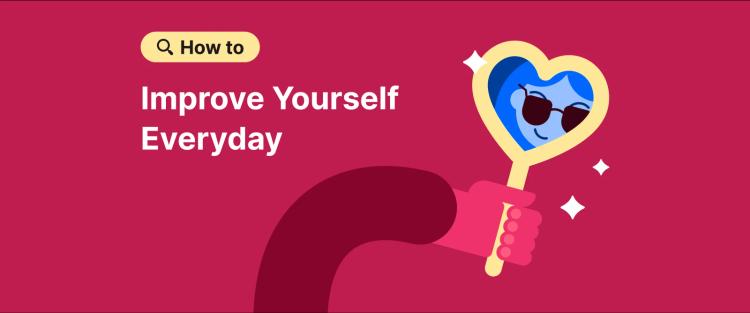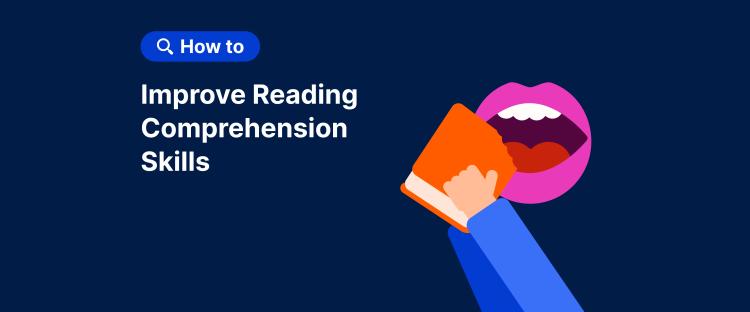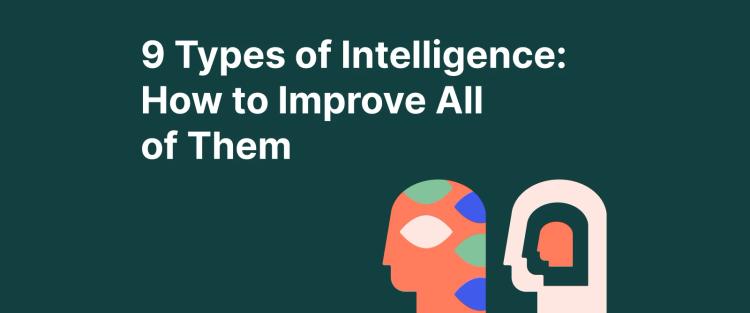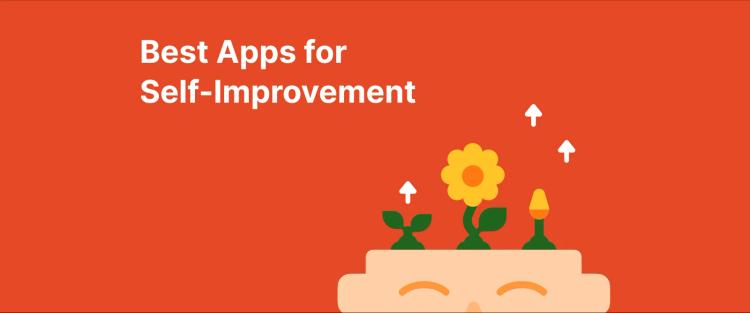Ever feel like your brain is overloaded? You try to remember a name, focus in a meeting, or finish a task without getting distracted, but it seems like your attention is slipping away. Why does this happen? More importantly, what can you do about it?
Good news — there are simple and effective techniques that can improve your working memory.
"The more we remember, the better we are at processing the world. And the better we are at processing the world, the more we can remember about it.” — Joshua Foer, ‘Moonwalking with Einstein.’
Did you know that the method of loci will help you remember anything by “placing” it in a mental room? Or that the prefrontal cortex, the “thinking” part of your brain, gets easily burned out?
Managing “cognitive load” will determine how you handle stress and remember details. So, uncover these practical, surprising “brain hacks” that can strengthen your memory, improve your focus, and help you learn new things faster.
Inspired by bestselling authors — David Rock (‘Your Brain at Work’), Joshua Foer (‘Moonwalking with Einstein’), and Johann Hari (‘Stolen Focus’), this guide will share valuable tips and tools to boost your memory. Ready to unlock your brain’s potential? Let’s dive in.
What is working memory?
Working memory is a type of short-term memory that temporarily stores and processes information to help you complete tasks, make decisions, and solve problems. It acts as a mental “workbench,” playing a crucial role in staying productive every day.

The American Psychological Association explains that working memory helps us hold and use information “in the moment.” It is critical for planning, decision-making, and organizing thoughts.
In ‘Your Brain at Work,' David Rock emphasizes the importance of strengthening working memory. When it is well-developed, it minimizes distractions, sharpens focus, and boosts productivity.
Imagine you are in a meeting, and someone suddenly asks, “What were the key points we just discussed?” If your working memory is sharp, you confidently recall the details and contribute on the spot. Or picture yourself walking into the kitchen, only to forget why you went there — a common sign your mental “workbench” is overloaded.
You need a strong working memory to keep your mind sharp and organized whether you are having trouble multitasking, coping with learning disabilities, or managing working memory issues (like working memory deficits: “Where did I park my car?” or “Where did I put my glasses?”), have ADHD (attention deficit hyperactivity disorder), or simply want to boost your brain function.
How strong is your working memory?
Let’s find out how strong your working memory is. Ask yourself these quick questions:
Do I often forget instructions shortly after hearing them?
Is it difficult for me to remember tasks unless I write them down?
Do I struggle to stay focused on one task at a time?
Have I forgotten a recent conversation I just had?
Do I fail to remember names shortly after meeting someone?
If you nodded “yes” to a few of these, it is time to strengthen your working memory. Dive in and learn how to create a “memory palace” for quick and easy information recall and discover chunking to simplify even the most overwhelming details.

Exercise daily to strengthen your working memory
Exercise daily to make a real difference in working memory. In her article ‘Improving fluid intelligence with training on working memory,' Susanne M. Jaeggi proves that working memory training games help strengthen problem-solving skills.
Joshua Foer advises how to turn abstract ideas into vivid, memorable images. In addition, George Miller explains how to break large portions of information into smaller “chunks.” So, let us explore three simple strategies you can start using today.
1. Visualization techniques
Have you heard of the “memory palace”? This technique will help you store and recall information by linking it to places you know well.
Joshua Foer introduces this technique in ‘Moonwalking with Einstein,’ pointing out that it has been used for centuries to remember all kinds of information, from speeches to long lists.
How does “memory palace” work? Try this brain exercise. Think of a familiar place — your home, for example. Now, take each item you need to remember and put them in a specific space or room inside your home.
For instance, picture milk in the fridge, bread on the counter, and apples on the dining table. When you need to recall where they are, just “walk through your house” in your mind and “pick up” each item.
Easy, isn’t it? Apply this strategy to your daily practice to improve your working memory capacity.
2. Chunking information
Chunking is a technique that breaks down pieces of information into smaller, manageable groups, making it much easier to remember sequences and lists.
In 'The magical number seven, plus or minus two' ‘George Miller states that the human brain can hold about 5–9 chunks of information at a time.
How chunking works. Instead of trying to remember a long 10-digit phone number all at once, break it into smaller parts: the area code, the first three digits, and the last four digits. By breaking large amounts of data into chunks, you will reduce the load on your memory and make it much easier to process information.

Give it a try now. Find a random business online and memorize its phone number using the chunking technique. After a few hours, try recalling it.
3. Dual-N-Back game
Dual-N-Back is a simple yet highly effective game for training your memory to remember sequences of visual and auditory cues over time.
This game is scientific-based and has been proven effective by experts in cognitive psychology and neuroscience. According to the National Library of Medicine’s sources, memory tests and brain training games, such as Dual-N-Back, improve both working memory and fluid intelligence.
Cognitive training apps like Impulse App, Lumosity, or Brain Workshop offer similar memory games to develop your working memory skills.
Develop lifestyle habits to reinforce your cognitive abilities
Certain lifestyle habits can either solve or cause your working memory problems. Rethink your daily habits: nutrition, sleep, and physical activity. How are they holding up? What should you change today to start improving your cognitive abilities? Here is what the experts say:
1. Nutrition
Did you know that what you eat directly impacts your memory? Foods rich in omega-3 fatty acids, like fish, along with leafy greens and berries, improve your brain function and mental health.
In his book ‘In Defense of Food’ Michael Pollan insists that a nutrient-dense diet strengthens brain health and sharpens cognitive function. Try adding salmon, walnuts, and blueberries to your diet.
2. Sleep
Your body produces three key substances during sleep: melatonin, growth hormone, and cortisol.
Melatonin ensures you fall into a deep, restful sleep, which your brain needs to stay sharp. Growth hormone (HGH or somatotropin) strengthens your brain’s connections (synapses) so that you can learn and remember more effectively. Sleep also keeps cortisol, the stress hormone, under control. Without enough sleep, cortisol levels rise, causing working memory problems, which make it harder to focus and recall information.

Aim for 7–9 hours of sleep each night. Turn off screens before bed and stick to a consistent schedule — your brain will thank you!
3. Physical activity
What comes to your mind when you hear the word “aerobic”? A morning run, a dance class, or sweating it out at the gym? It turns out physical activity gives your brain a boost, too.
The American Psychological Association explains that physical activity increases blood flow to the brain, improving memory and mental clarity. The Sunday Times supports this with a study involving 61,000 middle-aged British adults that found that good cardiovascular fitness reduces the risk of dementia by 35%.
So, if you happen not to practice physical exercise on a regular basis, start adding a daily walk, jog, or similar activity to your routine today.
Three actions you must take to return your focus immediately
How often do you lose track of what you are doing because of a buzzing phone or endless notifications? Digital distractions fragment your focus and make it harder for your brain to process and store information.
In ‘Stolen Focus,' Johann Hari explains, “Every time your attention breaks, it takes 23 minutes to refocus.” Imagine how much mental energy you waste switching between notifications and tasks! The good news is you can take control with a few simple actions.
1. Unplug to refresh your mind
When was the last time you fully disconnected from your devices? Take regular breaks from screens to give your brain a chance to reset and avoid mental overload.
Try digital fasting. Here’s a challenge: try “digital fasting” for a few hours each day. Turn off non-essential devices, silence notifications, and focus on a single task. Take a break from video games. Try unplugging and see how it feels to have uninterrupted time for yourself and your thoughts. Compare your productivity before and after.
2. Cut down on notifications
Do you check your phone or emails every few minutes? Each interruption pulls your brain away from what matters, leaving you scattered and forgetful.
Stop “checking” all the time. Here’s a tip: batch your notifications. Instead of constantly checking, set specific times during the day to go through emails and messages. For example, check your inbox in the morning, midday, and late afternoon. You will feel more focused and less mentally drained.
3. Breathe better, think clearer
In ‘Your Brain at Work,' David Rock writes,
“When you feel overwhelmed, taking a few deep breaths can clear your mind and create the mental space you need to focus.”

Breathe. Try this: spend five minutes practicing simple breathing exercises before starting a task. Inhale for four counts, hold for four, then exhale for four. Notice how your mind feels lighter and more prepared to concentrate.
Build competence: Learn how the hippocampus and prefrontal cortex reinforce your working memory
Oxford’s ‘The hippocampus and memory’ research insists that focused attention activates the brain's hippocampus, the part necessary for forming and storing memories.
Understanding how your brain works, how to take care of it, and how to put this knowledge into practice is vital to tackling poor working memory.
1. Discover the fascinating role of the hippocampus in improving your neuroplasticity
What is the hippocampus? The term comes from the Greek hippos (horse) and kampos (sea monster). To grasp the idea, simply imagine a seahorse-like shape.
This seahorse-like part of your brain is responsible for forming, organizing, and storing long-term memories. Therefore, it impacts your short-term working memory indirectly. In particular, the hippocampus:
Consolidates memories, helping transfer short-term memories into long-term storage.
Assists spatial navigation — the ability to determine location, direction, and distance. In the context of working memory tasks, it helps with organizing and retrieving information.
Supports neuroplasticity, allowing both working and long-term memory systems to function effectively.
Neuroplasticity is your brain's ability to change and adapt, allowing you to learn, grow, and recover. It is crucial for your mental well-being.
Keep your hippocampus in good shape to ensure a strong connection between your short-term and long-term memories. Mental self-care will lead you to greater results at work or more achievements in your personal life.
2. Understand how the prefrontal cortex helps you store information
In contrast to the hippocampus’ management of long-term memories, the prefrontal cortex oversees your daily routine. From Latin, the term literally means "bark" or "rind." It denotes the brain’s outer layer, which actually looks like bark. The prefrontal cortex is responsible for complex processes — such as thought, memory, and sensation.

Relating to your working memory, the prefrontal cortex temporarily holds and processes information required for immediate cognitive or thought-related action. In other words, it carries out an “executive function” by overseeing the following:
Decision-making
Problem-solving
Planning
Impulse control
Working memory (!)
How does it all work? Imagine a situation when you need to remember a new name. You consciously focus on it during the introduction and associate it with something you already know. It is the hippocampus that strengthens the connection between the new and the already known. The stronger the connection is, the easier it is for you to recall the name later. Most memory training techniques are based on the interaction of the hippocampus with the prefrontal cortex.
3. How to support your brain health to increase neuroplasticity and improve working memory
You have already learned the basics of improving your working memory — nutrition, sleep, and physical activity. Now, it is time to dive deeper and explore 22 brain-healthy foods for sustaining outcomes.
22 Brain-healthy foods and their benefits for memory and brain health
| No | Food | Key nutrients | Impact on brain function |
|---|---|---|---|
1. | Salmon | Omega-3 fatty acids | Supports hippocampus health and improves communication between brain cells |
2. | Walnuts | Omega-3, Vitamin E | Reduce oxidative stress and inflammation, supporting neuroplasticity |
3. | Blueberries | Antioxidants (anthocyanins) | Protect against oxidative stress and enhance communication between neurons |
4. | Spinach | Folate, Vitamin K, Lutein | Prevents cognitive decline and supports memory by improving neural connections |
5. | Eggs | Choline, Vitamin B12 | Choline is critical for acetylcholine production, which supports memory and learning |
6. | Turmeric | Curcumin | Promotes neurogenesis (growth of new brain cells) and reduces inflammation in the brain |
7. | Pumpkin seeds | Zinc, Magnesium, Iron | Enhance focus and memory; reduce mental fatigue |
8. | Dark chocolate | Flavonoids, Antioxidants | Increases blood flow to the brain, boosting memory and concentration |
9. | Avocados | Healthy fats, Potassium | Improve blood flow and support overall brain health, enhancing focus |
10. | Broccoli | Sulforaphane, Vitamin K | Protects brain cells from damage and supports neural signaling |
11. | Oranges | Vitamin C | Protect against cognitive decline by combating oxidative damage |
12. | Almonds | Vitamin E, Magnesium | Prevent memory loss and protect against cognitive decline |
13. | Green Tea | L-Theanine, Catechins | Improves alertness and promotes relaxation for better cognitive performance |
14. | Beets | Nitrates | Improve blood flow to the brain, supporting memory and decision-making processes |
15. | Whole grains | Fiber, Vitamin B6 | Provide a steady supply of glucose, essential for focus and concentration |
16. | Tomatoes | Lycopene | Protect brain cells from free radical damage |
17. | Sardines | Omega-3 fatty acids | Enhance brain cell communication and protect against memory decline |
18. | Apples | Quercetin | Protect neurons from oxidative damage and support cognitive function |
19. | Carrots | Beta-carotene, Lutein | Prevent age-related cognitive decline and boost memory retention |
20. | Kale | Vitamin K, Lutein | Improves neural signaling and protects against memory decline |
21. | Legumes | Protein, Folate | Enhance focus and support neurotransmitter production |
22. | Strawberries | Antioxidants, Vitamin C | Fight oxidative stress and reduce inflammation |
Consider brain-healthy foods to enhance your brain health. Instead of candies, grab a handful of almonds for a vitamin E boost. Swap sausages for salmon to get memory-enhancing omega-3s. Craving something sweet? Dark chocolate (70% cocoa or more) beats milk chocolate with flavonoids that support brainpower.
As you are better equipped to understand how proper nutrition supports brain health and how the hippocampus and prefrontal cortex sustain working memory, use the following three tips to remember information.
Three tips to remember names, tasks, and details smartly
Tip 1. How to remember names
To remember names better, connect them with visual symbols easily associated with something familiar to you. For example, when meeting "Anna," picture her with an aqua scarf (“Anna with an aqua scarf”) or another distinct feature. Foer advises just that in ‘Moonwalking with Einstein.'
Tip 2. Retain meeting details
As simple as it sounds, take a moment after each meeting to jot down key points. Some prefer to capture names, dates, numbers, and other important details during meetings, while others do it afterward.

You can always skip the unnecessary, but having those notes as a reference will be invaluable when you need to recall details that are hard to retain amidst the usual flood of information. You will simply help your brain.
Tip 3. Prioritize tasks
In ‘Moonwalking with Einstein, Joshua Foer states, "The art of memory is the art of attention." Focus requires task prioritization. Consider the legendary Eisenhower matrix if you are not yet using any priority system to improve your working memory.
In most cases, people use it for business purposes. In your case, our goal is to take the load off your shoulders to improve your working memory. So, let us analyze the Eisenhower matrix to see how it will increase your cognitive productivity.
This is what the Eisenhower matrix looks like:

How it works: Imagine you have too many things to do. Identify your tasks first. Write down everything you need to do as “tasks.” Next, categorize them into four groups:
1) Urgent and important.
2) Important but not urgent.
3) Urgent but not important.
4) Not urgent and not important.
What it means: “Urgent and important” tasks are the ones you need to do right away (a big test or a work deadline.) “Important but not urgent” are things like studying for a final exam or planning a vacation. “Urgent but not important” are distractions (a friend's text or a non-urgent email.) “Not urgent and not important” are things you can easily ignore (like scrolling through social media.)
Its impact: Focusing on the “urgent and important” and “important but not urgent” will allow you not only to “manage” routine but, most importantly, reduce stress!
According to Psychological Science, focused attention training improves working memory capacity by up to 16%, while the Journal of Experimental Psychology reports a 10% enhancement in performance through task prioritization.
Jeff Sutherland, author of Scrum, came to the empirical conclusion that focusing on one task at a time means “doing twice the work in half the time.” Focusing on “one thing at a time” increases your brain’s productivity, smartly saving its energy.
Three additional techniques to boost your working memory
Let’s move on to a few practical techniques, such as mnemonics, memory games, encoding, and the “control group” method to track the change.
1. Use mnemonics
Mnemonics are memory techniques that help you remember information more easily. All you have to do is create associations or patterns for that purpose.
For example: Turn complex information into simple, memorable formats. For instance, acronyms like PEMDAS (Parentheses, Exponents, Multiplication, Division, Addition, Subtraction) will help you quickly recall the order of operations in math.
2. Play memory card games
Engage in games that challenge your memory and focus.
Try this: Play Memory/Concentration to find matching pairs and improve visual recall. Use Uno to track colors, numbers, and strategy. Explore Set to train your pattern recognition skills while remembering multiple attributes. Or simply use English language card games to expand your vocabulary.
3. Practice encoding
Transform “dry” or “boring” information into meaningful formats for easier recall. Dress data into something fascinating to provoke a connection with your hippocampus.
How to do it: Turn lists into stories. For example, picture bananas wearing hats and milk cartons dancing to remember your grocery items! Make abstract data fun and vivid to keep it locked in your mind.
Since everyone is different, you may have to experiment to find which tip, technique, or method has the best effect on your working memory.
Track your progress
Try evaluating your results with "control groups." The control group in training programs and experiments does not undergo tests, while the experimental group does. Scientists compare the two after administering tests. Apply the “control group” method to measure your progress to see the difference.
For example, play Dual-N-Back daily and track your improvement over a week. Involve a friend who does not practice it every day (your control group), and compare the difference.
Your next step to even sharper memory
You have just gained valuable knowledge about how your brain works and received a treasury of advice on improving your working memory: tips, memory techniques, tools, examples, and good sources.

For more strategies and an in-depth understanding of this subject, explore summaries of ‘Your Brain at Work,' ‘Moonwalking with Einstein,' and ‘Stolen Focus’ on Headway. These insights will help you unlock your full cognitive potential right away.
Explore these topics on Headway now:
To dive even deeper, check out Headway’s library resources on improving memory:
We’ve tailored these lists of bestsellers to meet your needs and improve your memory.
How to use the Headway app
Download the Headway app. Decide which topic you are interested in. Then, browse the app's curated library to review summaries of top books in your interest area.







